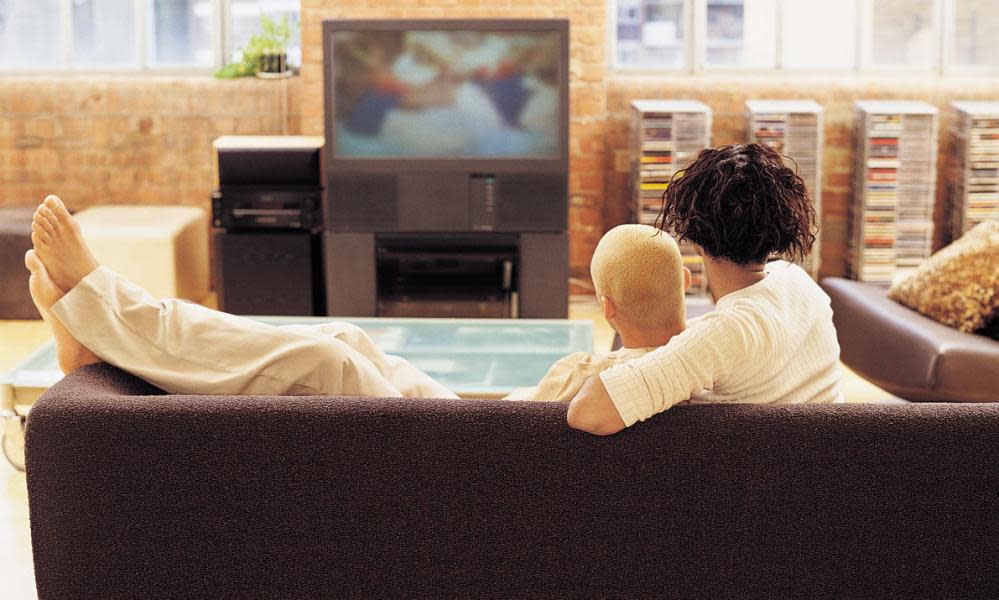Rise in deathbed weddings prompts call to protect cohabiting couples

The government is being urged to provide legal protection to millions of cohabiting couples as evidence emerges of an increase in the number of civil partnerships and deathbed weddings.
In a letter to the Guardian on the third Saturday in August – the busiest day for marriages this year – a coalition of legal organisations and family charities has called on ministers to update legislation and tackle the myth of common-law marriage rights in England and Wales.
“Today is the busiest day of the year for weddings, yet marriage numbers are declining,” the letter says. “Currently one in eight adults in England and Wales are cohabiting, a trend steadily increasing since 2002.”
Couples mistakenly believe they have the same legal and financial rights and protections as married couples, say the organisations, which include the Bar Council, the Law Society, Resolution, Relate, Rights of Women, OnlyMums and OnlyDads.
“As a crucial step towards securing fair outcomes for millions of people, we urge the government to take steps to bring forward, as a minimum, basic protections for cohabiting couples.”
The number of families formed by unmarried, cohabiting couples has rocketed in recent years, according to the Office for National Statistics (ONS). In 1996 there were 1.5 million cohabiting families in the UK. By 2017, the figure had risen to 3.3 million.
Mid-August and early September are traditionally the most popular times to marry. According to a survey by Bridebook, the online wedding planner, 18 August is the busiest day for ceremonies this year.
Couples who choose not to marry or enter into a civil partnership have no benefit or inheritance rights when a partner dies, and their economic vulnerability is a worry for family lawyers and charity workers.
Civil partnerships are currently available only to same-sex couples, but the supreme court ruled this summer that it was discriminatory to deny them to heterosexual couples.
Campaigners believe opening up less formal civil partnerships would encourage millions of heterosexual cohabiters to enter into a legally constituted relationship. Even the Marriage Foundation supports extending civil partnerships, believing they are “infinitely preferable to unthinking and risky cohabitation”.
Figures from the ONS this week show there was a 2% rise in new civil partnerships last year, the second consecutive year in which there has been an increase. The government expected them to decline sharply after the legalisation of gay marriage in 2014.
Significantly, the figures show more than half of all civil partners were 50 or older, suggesting couples are belatedly realising the advantages of formalising their partnerships.
There is also evidence from family lawyers and the Home Office of an increase in the number of deathbed marriages. The most high-profile this year involved Sir Ken Dodd, who married his long-term partner, Anne Jones, two days before he died. Commentators suggested the comedian would have the last laugh on the taxman by saving her from inheritance duties.
Passport Office figures record a category of registrar general’s licence for urgent marriages and civil partnerships, usually in hospitals. It also includes weddings in jails. In the three months to May 2018 there were 190 such licences issued, while in 2015 the quarterly average was only around 148.
Upon the death of a partner, unmarried cohabitants do not have rights to their pension, are exposed to inheritance tax and cannot claim certain benefits. Scotland, by contrast, has granted cohabitants legal rights since 2006.
Jo Edwards, a former chair of the family law organisation Resolution, said she was aware of an increase in deathbed marriages. “The difference in treatment of cohabitants on the death of one partner, when contrasted with the position of their married counterparts, has been brought into sharp focus again recently by the Siobhan McLaughlin case heard by the supreme court,” she said.
“The stark reality is that most sleepwalk into difficulties, unaware of their lack of rights as an unmarried couple until it is too late. Ultimately, the best protection as the law stands is to get married; that is why so-called deathbed weddings are a growing phenomenon. But given the emotional angst that this can cause at an already difficult time, [it’s] far better to change the law and offer cohabitants protection on death.”
Karon Walton, the chief legal officer at Solicitors for the Elderly, said: “It is financial security and pension rights that drives this. People don’t talk about when they will die and it gets to the stage where someone is on their deathbed and panic sets in. That’s why we need to raise awareness.”
A Ministry of Justice spokesperson said: “We recognise not all couples wish to marry or enter into civil partnerships, and those cohabiting can already enter into agreements to protect their property rights and draft wills.
“The government keeps all areas of family law under review, including the laws affecting cohabitation.”

 Yahoo News
Yahoo News 
